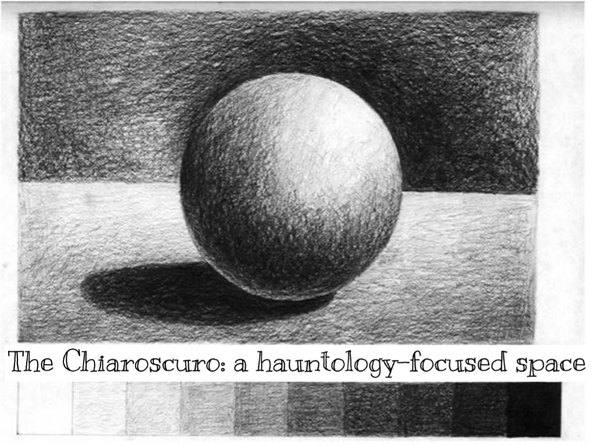A post by Emma Dee
Introduction
We begin, not with a text, but with an image.
This is a depiction of a painting by Caspar David Friedrich, a well-known German Romantic painter and explorer of the sublime. Not only is this a representation of what many of us might think of when we hear the term ‘Gothic,’ but the story of this particular image might help elucidate a concept of hauntology that this article is exploring. This picture is not the original.

